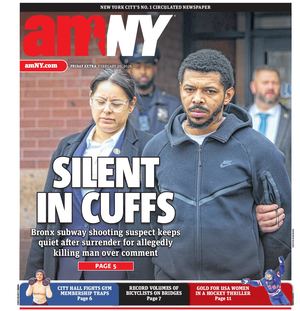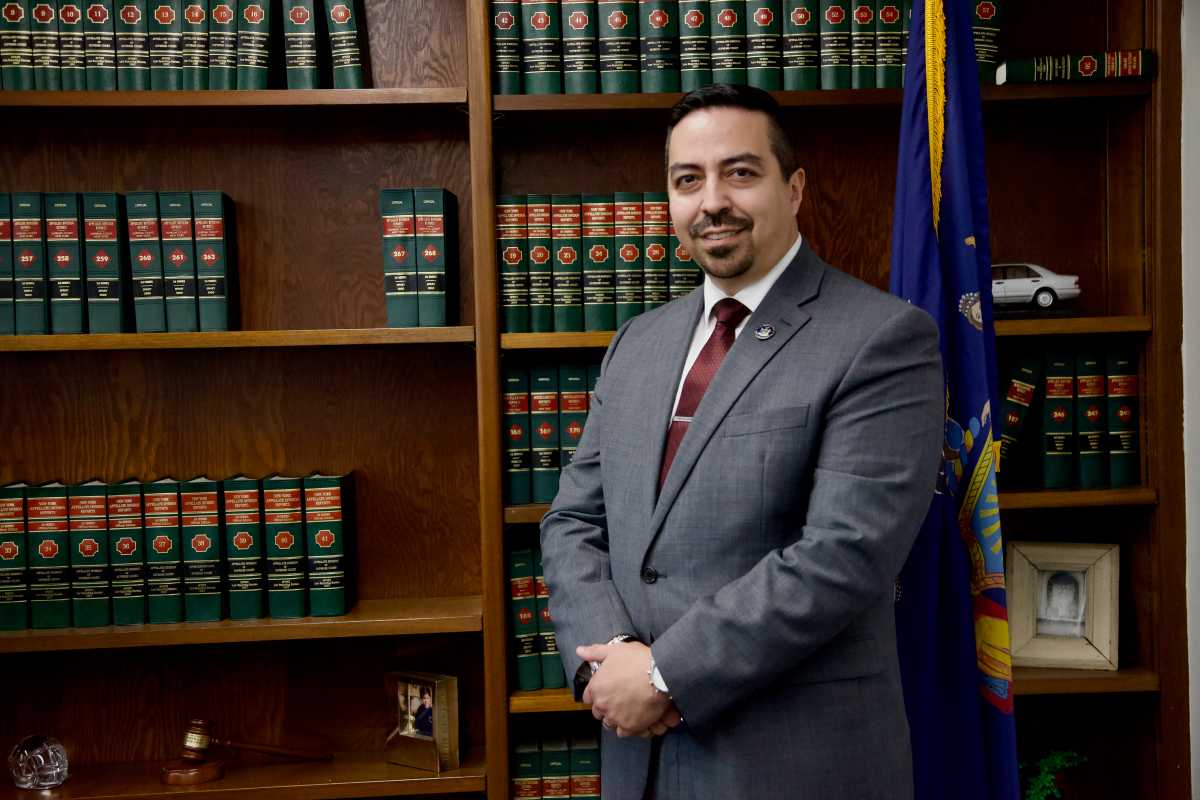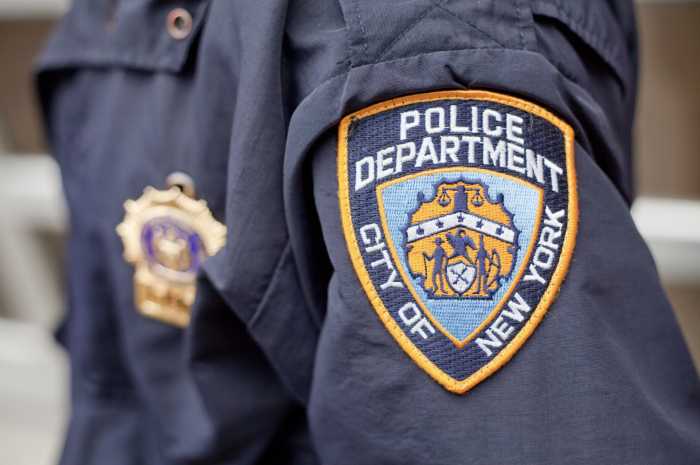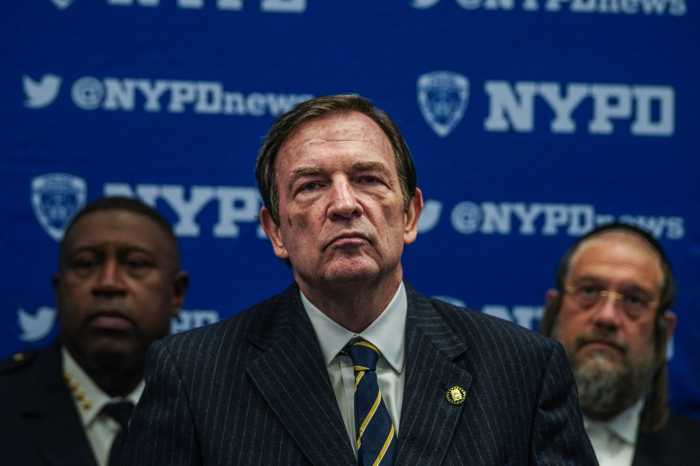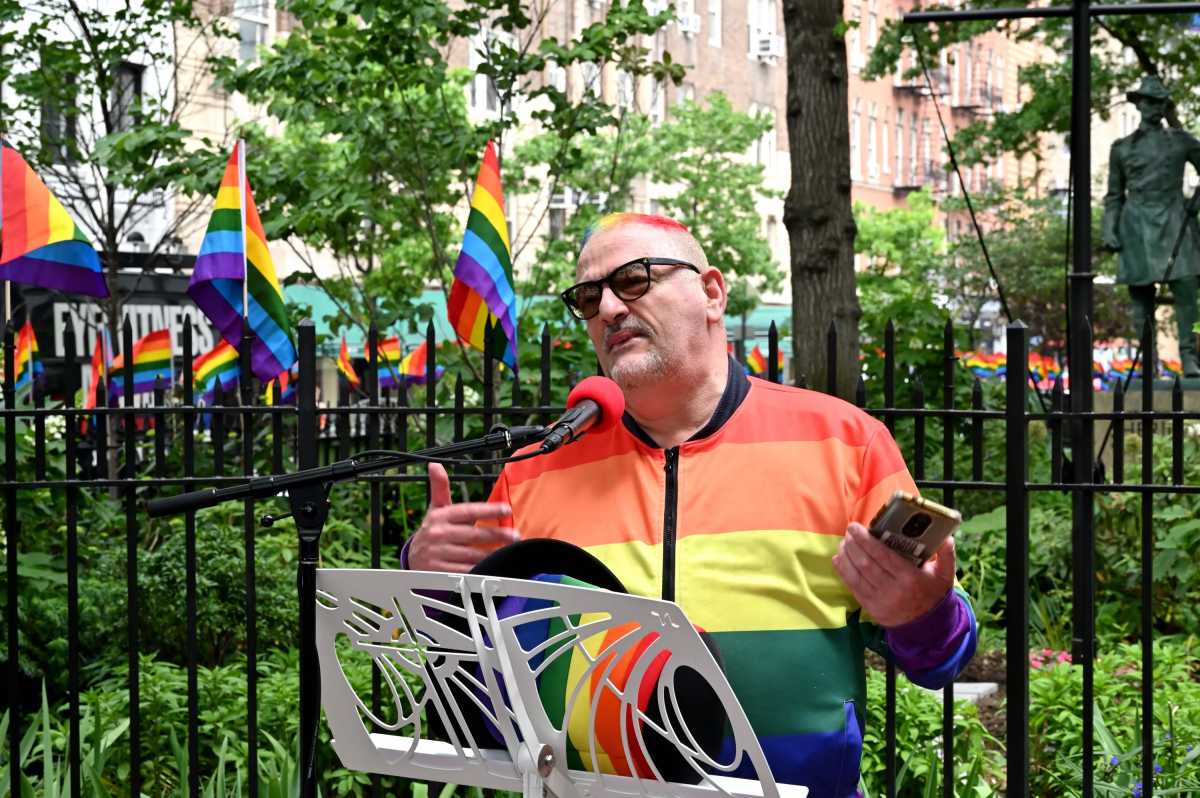It was a friend’s early brush with the law as a teenager that put Queens Criminal Court Supervising Judge Edwin Novillo’s on the path to a career in the legal profession.
After his friend was arrested, Novillo found out that the Legal Aid Society would appoint an attorney for anyone who couldn’t afford one. His introduction to that attorney, Ken Deluca, whom he would later work with as an intern at the Legal Aid Society, changed his life.
“Seeing the compassion that that attorney had for somebody he had never met before turned [him] into somewhat of a superhero in my eyes,” Novillo said, adding that then and there he decided he wanted “to be that attorney, the one that helps those people who have nobody else in their corner at their lowest point in their lives.”
Novillo worked as a Legal Aid Society public defender for over 14 years before setting his eyes on the bench and becoming the first Ecuadorian appointed as a judge in New York. His motivation was to make a difference on a magnified scale. The number of cases he would oversee multiplied by dozens a day between the jump from attorney to judge.
That idea of case volume and stamina has followed him through the court system from his first assignment as a judge in the Brooklyn Criminal Court’s standards and goals part, where he was put in charge of resolving the county’s oldest cases, to his new gig in Queens as supervising judge, where he has focused on expanding trial capacity and successfully tackling the borough courts’ case backlog.
To reduce the backlog, he has relied on his tenacious work ethic. The conversation with amNY Law was punctuated by the continuous chirping of Novillo’s phone alerting him that someone on his staff was calling, emailing or texting him — a sign of his accessibility as much as hustle.
“Everybody who’s involved in our court system has my cell phone,” he said. “I’m working almost 24 hours but I love what I do.”
What motivated Novillo to share his personal cell number with a perhaps inadvisable number of people? He would say it’s the sense of mission that inspired him to join the defense bar in the first place.
“To the extent that being a public defender has shaped me, it’s helped me understand that everyone involved in a case is a human. I don’t look at cases that come before me as pieces of paper,” he said.
Novillo immigrated from Ecuador to New York City at about three years old, and grew up in Jackson Heights, Queens. His mother was a factory worker in the garment district; his father worked double shifts at several Italian restaurants. His mother did “what they called the piece work, which was for every piece you sew, you’d get a penny,” for about 30 years before retiring, leaving her with vision problems and severe arthritis.
“I had very little guidance. It’s not that my parents didn’t care, it’s just that they worked so hard,” Novillo said.
Once he had his revelation about being destined for the world of public defense, he committed his education to it and started to do better in school. After high school, he attended the John Jay College of Criminal Justice, graduated with summa cum laude honors in three and a half years, while working. He then attended Touro Law on a partial scholarship that would allow him to do public interest work without crushing debt.
At the Legal Aid Society, he represented around 9,000 defendants — first in Brooklyn and then his home county of Queens, starting off with low-level misdemeanors and working his way up as a senior attorney to Class A felony cases.
This experience gave him a vantage point into how court delays took a “tremendous impact” on his clients.
“You’re carrying this case with you for a year, two years, rarely but sometimes three years, and that prevents [clients] from potentially getting jobs,” Novillo said. “It prevents [clients] from going back to work. People are suspended depending on the outcome of a criminal case. It has other collateral consequences for some people, such as immigration consequences.”
That approach quickly clicked into place on the bench and when Novillo was assigned to the standards and goals part. Instead of defending clients in need, he would attack the backlog.
“The way that I still see access to justice is giving people an opportunity to have their day in court to litigate their cases,” he said.
Novillo would get cases to resolve through his own willingness to barrel through long caseloads per day. In cases where defense or prosecution wasn’t ready for trial, he would give them a brief window and then stick it on the calendar even if it was already stacked.
“What I started doing is I started holding their feet to the fire, and I started saying, ‘Well, you’re requesting a week. No problem. If it’s the 120th case that I have on that calendar that day, I’ll give you a week,’” Novillo said.
The result ended up making delayed parties more willing to resolve cases, whether it was through litigation or through plea bargains. Novillo got thousands of cases that were over 90 days old down to around 570 over the three years he presided over the part.
As an effective case manager, he could give the average joe a shot at justice. His docket management continued to be an asset when he was transferred to Queens Criminal Court, where he presided over unindicted felonies and resolved more cases by plea than any other judge in the state, he said.
He was subsequently promoted to serve as an acting justice of the criminal term of Queens Supreme Court in 2024 before he took over as supervising judge this past January, where he oversees the administration of the criminal court and courthouse operations.
“I think my approach is a collaborative one. I want to make sure that I listen to everybody’s input,” Novillo said.
Nearly a year later, Novillo has some impressive stats to show for his tenure as an administrator. He has opened a second trial part for misdemeanor cases, which has resulted in 20% more trials being completed compared to the previous year. Since February, he has reduced the number of cases over a year old by 31%. He opened an expedited arraignment part on Fridays for cases where the DA’s office is consenting to release defendants. It processes 20 to 30 cases every Friday morning, and has led to an average 12% decrease in the arrest-to-arraignment time.
“We don’t want anybody staying incarcerated, a second longer than they need to,” Novillo said.
Novillo glows in talking about his role as a court administrator. He called the opportunity to streamline Queens criminal court “an incredible privilege” and the “epitome of [his] legal career.”
For a man who seems to be on call at all hours, the question becomes what grounds him in his spare time or if he has any. For Novillo, he said the answer is his 11- and 15-year-old children.
“Anytime I get to spend with them — whether it’s interrupted or not — is how I unwind,” Novillo said.
